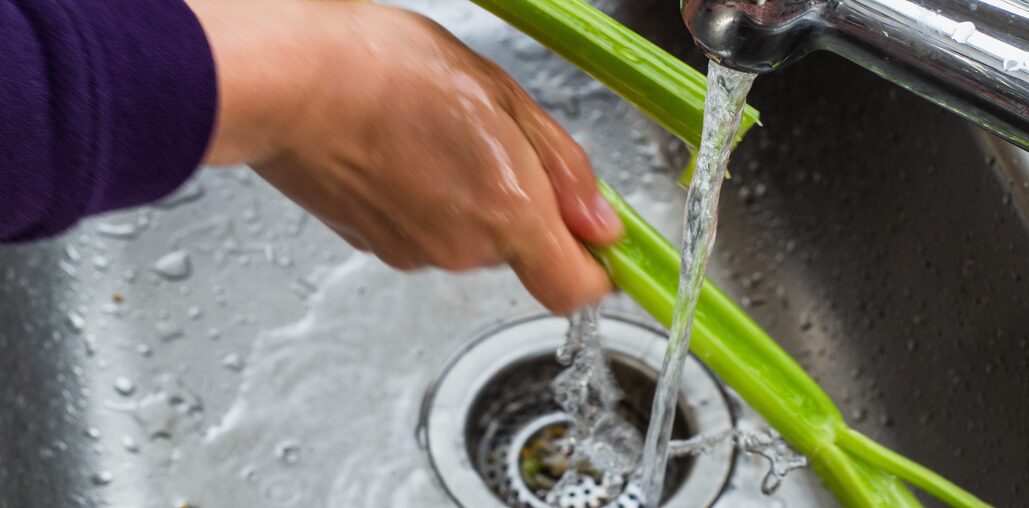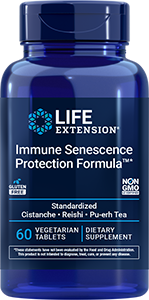Food-Borne Illness

Ways to Prevent Dangerous Food Borne Bacteria in Your Kitchen
By Deanna Lynn Sletten
There are an estimated 76 million cases of foodborne illnesses reported each year, according to the Center for Disease Control and Prevention. While that fact may not be surprising, the fact that most of these cases are caused by contaminated surfaces and the mishandling of food at home.
Restaurants are required to uphold certain standards of cleanliness and food preparation but at home most kitchens wouldn’t pass these requirements.
Even in the cleanest of kitchens, dangerous bacteria can be spread by mishandling of food, surfaces not cleaned properly or even from not washing your hands enough. Here are ways to make sure your kitchen would pass even the most stringent of inspections so your family will stay healthy.
Skip Using a Sponge for Clean-ups
No matter how often you rinse your sponge in hot water it still can hold up to 7 billion bacteria in it at any one time. Using it to clean up after cutting raw meat or an egg spill, then wiping counters with it can spread bacteria all over your kitchen.
Instead, use a paper towel to clean up raw meat messes so you can throw it away afterward. Also, use a bacterium fighting cleaner to make sure the surface is bacteria free.
If you must use a sponge, Dr. Susan Mitchell, PhD, RD, FADA in the article Is Your Kitchen Sponge Making You Sick? suggests cleaning the sponge often in a mixture of water and bleach (one tablespoon bleach to one gallon of water) to keep it bacteria free.
Testing
STD Tests
STD Testing at-Lab (Near Me)
STD Tests at-Home (Kits)
Fertility Tests
Women's Fertility Test at-Home
Health Tests
See All >>
Keep the Microwave Clean
Have you ever had a small spill in the microwave and used it anyway? Food that is spilled or splattered on any surface can grow bacteria that can make you sick. Always wipe down the inside of the microwave after each use as well as any kitchen surface that food is spilled or splattered on.
Be Careful when Washing Hands
Yes, you do want to wash your hands after handling raw food or in-between touching other foods but remember that the bacteria you are washing off of your hands is now in your kitchen sink.
Placing food in the sink to rinse after washing your hands in the same sink can spread bacteria. Use another sink to wash your hands in or have a spray bottle of the water/bleach mixture on hand to wash out the sink after every hand washing. Make sure the sink handles are kept clean too.
Have Separate Cutting Boards
Cutting up lettuce on the same cutting board you just cut raw chicken on can spread dangerous bacteria to your salad. It is suggested you have two cutting boards, one for raw meat and the other for vegetables, fruits, cheese and bread.
Plastic cutting boards are best because they don’t absorb the bacteria like wood ones do. Also, in-between cutting foods it is suggested to clean the board first with the water/bleach mixture then with dish soap. This way you won’t risk foods becoming contaminated.
Wash all Fruits and Vegetables before Cutting
This rule applies to watermelon, grapefruit, honeydew melons, oranges or any type of fruit and vegetable you are cutting. Even though you don’t eat the watermelon rind, there can still be bacteria on it. When you cut the watermelon then you are spreading bacteria into the edible parts. Wash everything thoroughly before cutting, peeling or cooking it.
Store Cleaning Products Carefully
Always store your cleaning supplies far away from pots, pans, cutting boards or any other cooking utensils. This will ensure that dangerous chemicals won’t contaminate the items you cook your foods in.
Keeping your kitchen bacteria and chemical free will help ensure that you and your family are not one of the millions of people each year made sick from improper handling of food.
Related Articles
Food Poisoning - Causes, Symptoms & Treatment of Food Poisoning
Products
Life Extension Immune Senescence Protection Formula™ (60 Tablets)
LE’s Best in Class Immune Senescence Protection Formula provides immune system support to rejuvenate the immune system & promote healthy response.
Order Now >>
 Disclaimer: Articles not intended to Diagnose, Treat, Cure or Prevent Diseases.
Disclaimer: Articles not intended to Diagnose, Treat, Cure or Prevent Diseases.
Infections | Education | Products | Testing


